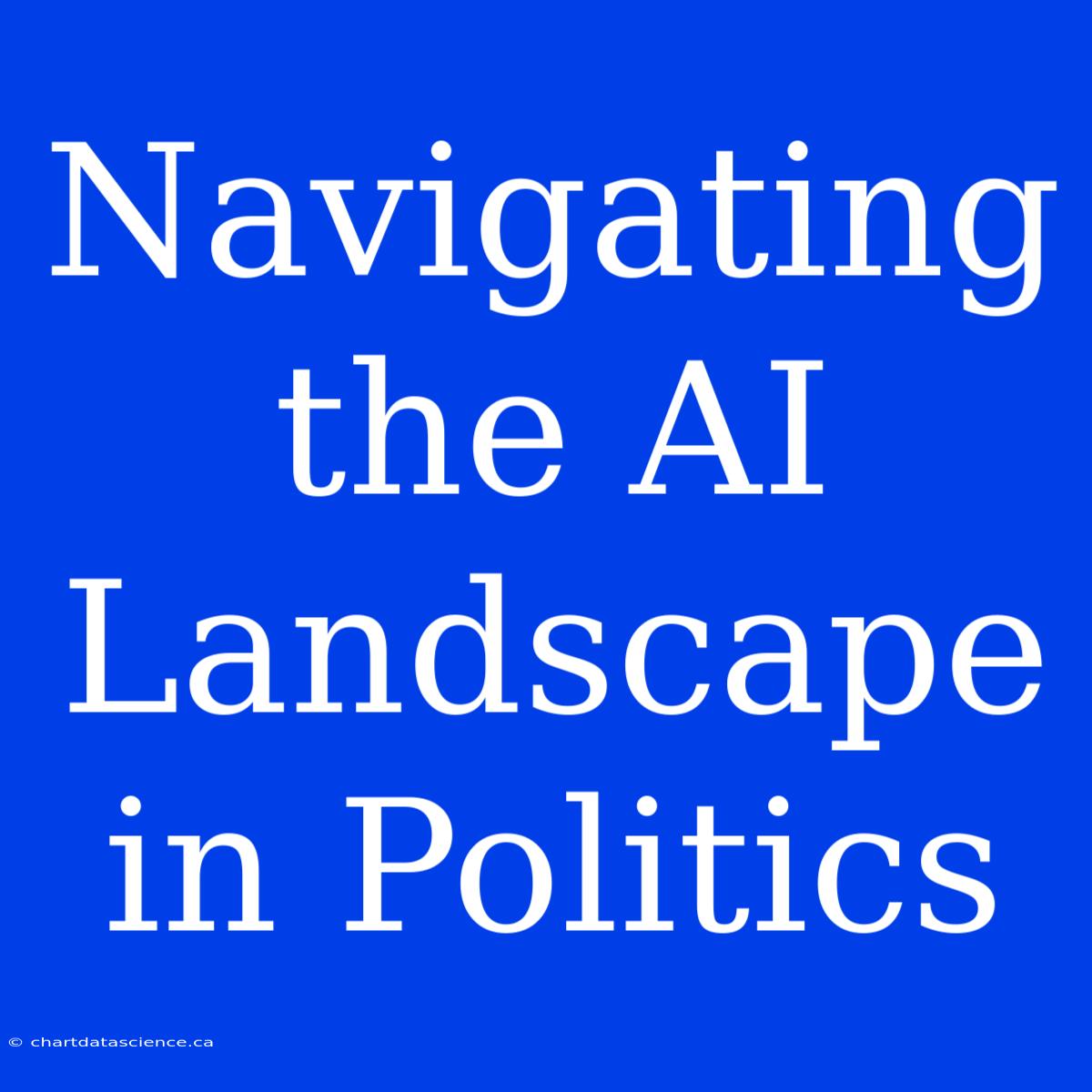Navigating the AI Landscape in Politics: A Guide for the Perplexed
The political landscape is shifting, and artificial intelligence (AI) is playing a major role. From targeted campaigning to policy analysis, AI is transforming the way we understand and engage with politics. But this rapid development raises crucial questions about its impact on democracy, ethics, and the very fabric of our political systems.
The Rise of AI in Politics: A Double-Edged Sword
AI is increasingly used in political campaigns, offering tools for:
- Micro-targeting: Identifying voters based on demographics, interests, and online behavior to tailor messages and increase campaign effectiveness.
- Sentiment analysis: Understanding public opinion on key issues through analyzing social media posts and online conversations.
- Predictive modeling: Forecasting election outcomes and identifying potential voting patterns.
However, these advancements come with concerns:
- Data privacy: The collection and analysis of vast amounts of personal data raises concerns about individual privacy and the potential for misuse.
- Algorithmic bias: AI algorithms can perpetuate existing societal biases, leading to unfair targeting or discrimination.
- Transparency: The lack of transparency in AI algorithms can make it difficult to understand how decisions are made, hindering accountability and trust.
Navigating the Ethical Labyrinth: AI in Politics
The potential benefits of AI in politics are undeniable, but so are the risks. Navigating this complex landscape requires careful consideration of ethical implications and responsible use. Here's how:
- Transparency and accountability: Demanding transparency in algorithms and data collection is crucial. This includes open-source code, audit trails, and clear explanations of how decisions are made.
- Data protection: Robust data privacy regulations are necessary to protect individuals from misuse and ensure informed consent.
- Combatting bias: Developing algorithms that are fair and unbiased requires diverse data sets and rigorous testing.
- Human oversight: It's vital to ensure that AI is not used to replace human judgment entirely but rather as a tool to enhance it.
The Future of AI in Politics: A Call for Collaboration
The future of AI in politics is uncertain, but one thing is clear: we need to approach it thoughtfully and collaboratively. This means open dialogue between policymakers, technology developers, and the public.
By addressing the ethical concerns and ensuring responsible use, we can harness the power of AI to build a more informed, participatory, and accountable democracy for the future.

